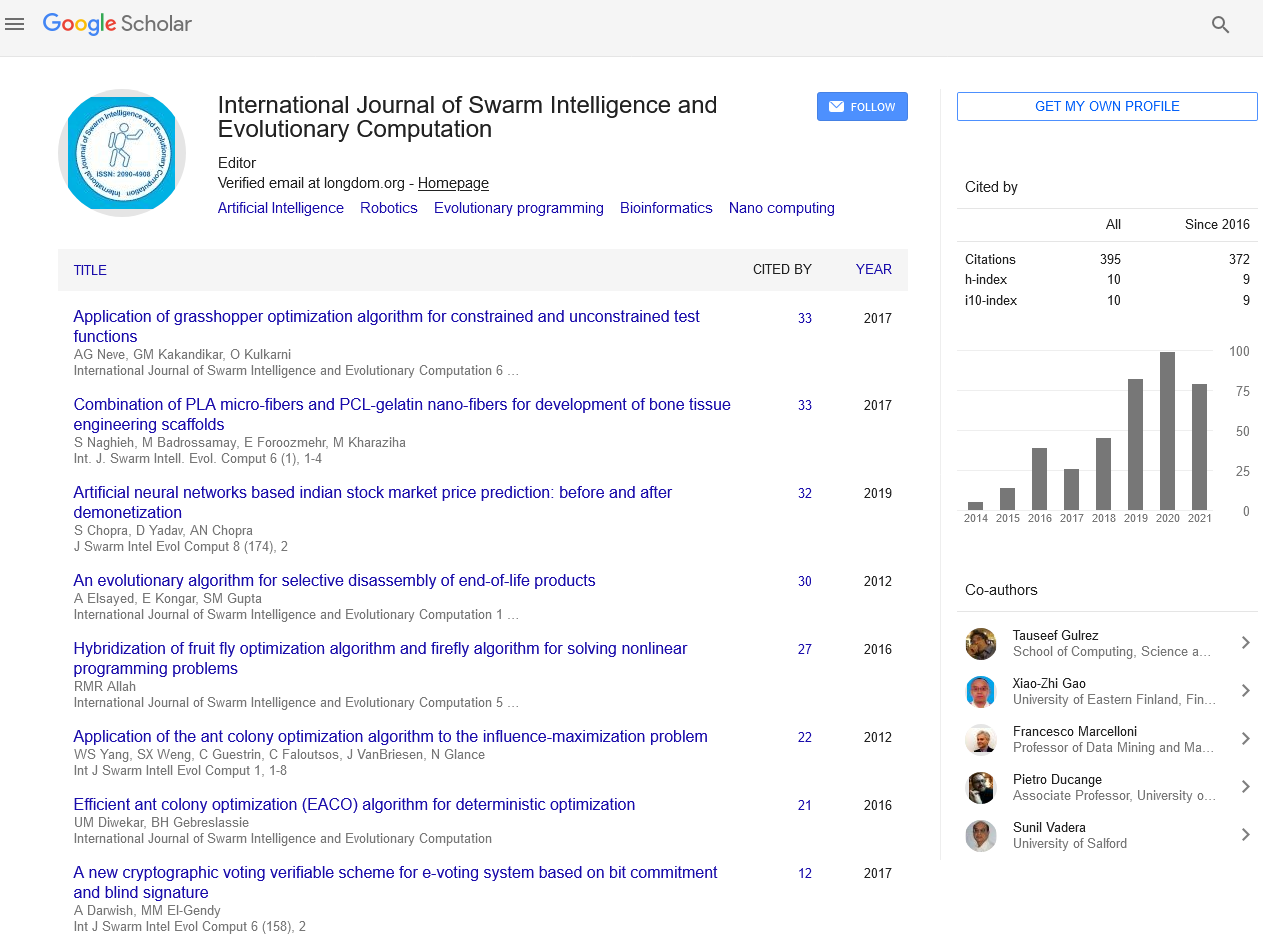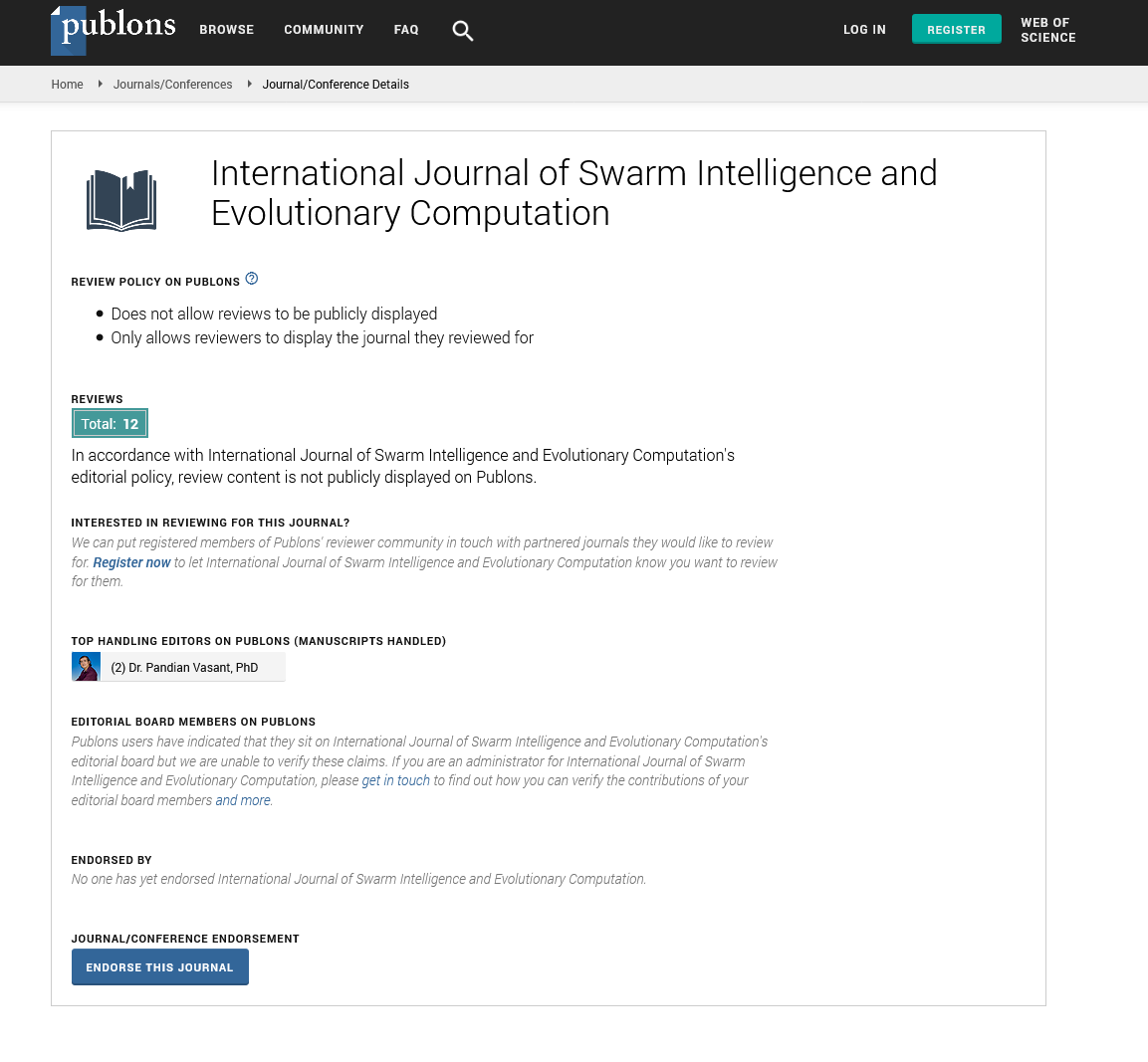Indexed In
- Genamics JournalSeek
- RefSeek
- Hamdard University
- EBSCO A-Z
- OCLC- WorldCat
- Publons
- Euro Pub
- Google Scholar
Useful Links
Share This Page
Journal Flyer

Open Access Journals
- Agri and Aquaculture
- Biochemistry
- Bioinformatics & Systems Biology
- Business & Management
- Chemistry
- Clinical Sciences
- Engineering
- Food & Nutrition
- General Science
- Genetics & Molecular Biology
- Immunology & Microbiology
- Medical Sciences
- Neuroscience & Psychology
- Nursing & Health Care
- Pharmaceutical Sciences
Perspective - (2023) Volume 12, Issue 2
Challenges and Opportunities in Computational Biology and Systems Biology
Paul Williams*Received: 22-Feb-2023, Manuscript No. SIEC-23-20954; Editor assigned: 24-Feb-2023, Pre QC No. SIEC-23-20954 (PQ); Reviewed: 10-Mar-2023, QC No. SIEC-23-20954; Revised: 17-Mar-2023, Manuscript No. SIEC-23-20954 (R); Published: 27-Mar-2023, DOI: 10.35248/2090-4908.23.12.304
Description
Computational biology is an interdisciplinary field of study that applies computational methods to solve biological problems. It combines the principles of computer science, mathematics, and statistics with biology to extract knowledge from large and complex datasets. With the advent of high-throughput technologies, the amount of biological data generated has grown exponentially, making computational biology essential for analyzing and interpreting these data.
Systems biology
Systems biology is the study of biological systems at a systems level. It involves the integration of data from multiple sources, including genomics, proteomics, and metabolomics, to build comprehensive models of biological systems. Computational biology is essential in systems biology as it provides tools for data integration, modeling, and simulation. It is also used to analyse the behavior of biological systems under different conditions and to predict the effects of perturbations.
Challenges
Computational biology faces several challenges, including the management and analysis of large datasets, the development of accurate models, and the integration of data from multiple sources. The management of large datasets requires specialized infrastructure, such as high-performance computing and cloud computing, to store, process, and analyze data. The development of accurate models requires a deep understanding of biological systems and the application of advanced mathematical and statistical methods. The integration of data from multiple sources requires the development of standardized data formats and the use of data integration techniques. Some of the major challenges in computational biology include:
Data integration and management: With the advent of highthroughput technologies, large amounts of biological data are being generated. The challenge lies in integrating and managing these diverse types of data from different sources.
Data quality and reproducibility: The accuracy and reproducibility of computational analysis depend on the quality of the input data. Therefore, it is essential to develop methods for quality control and to establish standards for data sharing and reproducibility.
Algorithm development: Developing efficient algorithms for analyzing large-scale data sets is a major challenge in computational biology. These algorithms must be scalable, accurate, and adaptable to different types of data.
Interpretation of results: Interpreting the results of computational analyses can be challenging due to the complexity of biological systems. Developing methods for visualizing and interpreting results is essential for understanding the biological mechanisms underlying the data.
Model validation and refinement: Developing accurate computational models of biological systems requires careful validation and refinement. This process can be time-consuming and iterative, but it is essential for ensuring the accuracy and reliability of the models.
Ethical considerations: As with any field that involves the use of personal data, computational biology must consider the ethical implications of its research. This includes issues related to privacy, data security, and informed consent.
Conclusion
Computational biology has become an essential tool for studying biological systems. It provides a powerful way to analyse and interpret large and complex datasets and to build comprehensive models of biological systems. However, computational biology also faces several challenges, including the management and analysis of large datasets, the development of accurate models, and the integration of data from multiple sources. Overcoming these challenges will require the continued development of advanced computational tools and the collaboration between biologists, computer scientists, and mathematicians.
Citation: Williams P (2023) Challenges and Opportunities in Computational Biology and Systems Biology. Int J Swarm Evol Comput. 12:304.
Copyright: © 2023 Williams P. This is an open-access article distributed under the terms of the Creative Commons Attribution License, which permits unrestricted use, distribution, and reproduction in any medium, provided the original author and source are credited.


